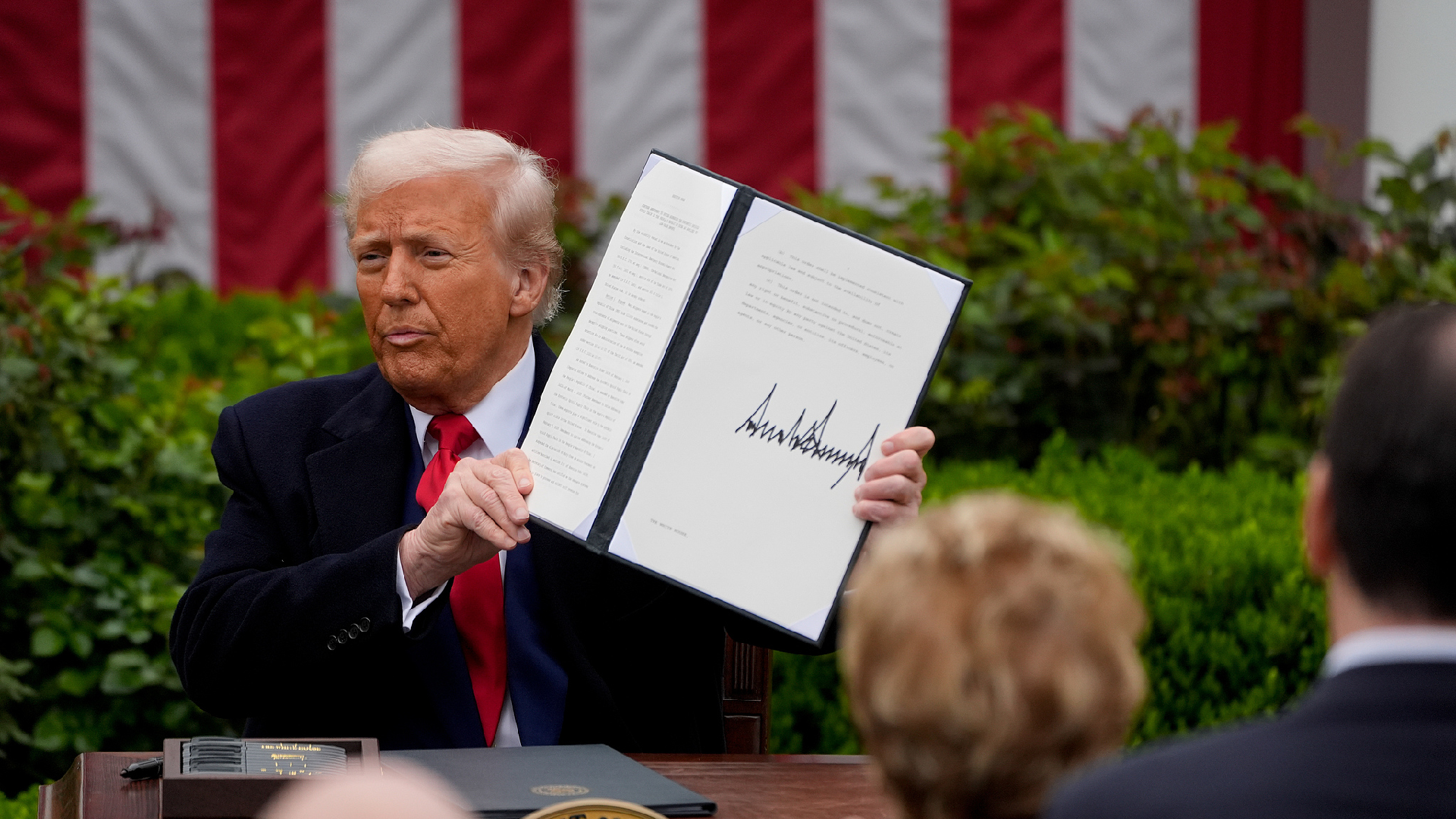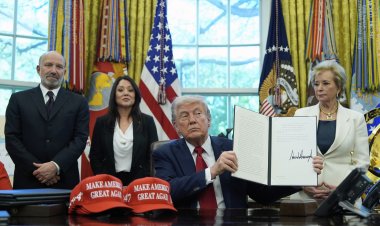Trump Declares 10% Import Tariff, Increases Rates for Certain Countries
On Wednesday, U.S. President Donald Trump enacted an executive order regarding "reciprocal tariffs," which introduces a "minimum baseline tariff" of 10 percent along with increased rates for specific trading partners.

Trump asserted that these "reciprocal" tariffs are a direct response to tariffs and various non-tariff barriers imposed on U.S. goods. He believes that these new levies will enhance domestic manufacturing job opportunities.
Following the announcement, U.S. stock futures experienced a significant decline amid ongoing volatile trading, as investors speculated on the potential impacts of the new tariffs on the global economy, inflation, and corporate earnings. Since February, U.S. stocks have lost nearly $5 trillion in value.
Details of the Reciprocal Tariffs
The executive order stipulates that all imports to the United States will incur an additional 10 percent tariff, unless specified otherwise, with the new measure set to take effect on April 5.
Trump will also impose "individualized reciprocal higher tariffs" on nations and regions where the U.S. has the largest trade deficits, according to documentation from the White House, to be implemented starting April 9.
A White House official informed Reuters that about 60 countries will be subject to these heightened penalties. Certain goods, including steel, aluminum, and auto parts already affected by Section 232 tariffs, will not be included in the reciprocal tariff list.
Additionally, exemptions will apply to various goods such as copper, pharmaceuticals, semiconductors, lumber, gold, energy, and specific minerals unavailable in the U.S., as detailed in a White House fact sheet.
For Canada and Mexico, goods compliant with the United States-Mexico-Canada Agreement (USMCA) will remain at a zero percent tariff, while non-USMCA compliant goods will attract a 25 percent tariff, and non-USMCA compliant energy and potash will incur a 10 percent tariff, according to the White House.
During a speech in the White House Rose Garden, Trump showcased a chart illustrating "reciprocal tariffs," which indicated varying tariff rates for different countries and regions.
For instance, China will face a 34 percent tariff, the European Union 20 percent, Vietnam 46 percent, Japan 24 percent, India 26 percent, South Korea 25 percent, Thailand 36 percent, Switzerland 31 percent, Indonesia 32 percent, Malaysia 24 percent, and Cambodia 49 percent.
Trump asserted that numerous trading partners impose "non-monetary barriers" on the U.S., with the chart depicting tariff rates "charged" by these countries or regions to the U.S., including examples such as "currency manipulation" and "trade barriers."
Domestic Concerns
Despite Trump's claims that the increased tariffs will generate government revenue and revitalize U.S. manufacturing, economists have warned that such actions could drive up prices for American consumers and businesses, disrupt global trade, and negatively impact the global economy.
"The move was a significant escalation of Mr. Trump's trade fight and is likely to ripple through the global economy, driving up prices for American consumers and manufacturers while inciting retaliation from other nations," reported The New York Times.
"There is no basis for the claimed tariff-equivalent rates imposed by other countries. This is pure invention," stated Gary Clyde Hufbauer, a nonresident senior fellow at the Peterson Institute for International Economics.
"The tariffs announced are at the extreme end of forecasts," Hufbauer continued. "Plus rabid characterization of foreign countries; hard to see the U.S. avoiding a recession. World growth will be down 1 percent or more," he added.
U.S. Representative Gregory Meeks, the leading Democrat on the House Foreign Affairs Committee, announced plans to introduce legislation aimed at terminating the tariffs, although such a bill is unlikely to pass in the Republican-controlled Congress.
"Trump just hit Americans with the largest regressive tax hike in modern history – massive tariffs on all imports. His reckless policies are not only crashing markets, they will disproportionately hurt working families," Meeks stated.
International Reactions
The extensive duties would create new barriers around the world's largest consumer economy, marking a reversal of decades of trade liberalization that have defined the global order. Trading partners are anticipated to retaliate, potentially leading to significantly higher prices on a wide range of products from bicycles to wine.
European leaders expressed concern, highlighting that a trade war would harm consumers and benefit neither side. "We will do everything we can to work towards an agreement with the United States, with the goal of avoiding a trade war that would inevitably weaken the West in favor of other global players," stated Italy's prime minister, Giorgia Meloni.
On Wednesday, Brazil announced it is evaluating potential responses to the 10 percent tariffs imposed on imports from the largest economy in Latin America, with its Congress approving a bill to outline a framework for trade retaliation.
"This is not the act of a friend," Australian Prime Minister Anthony Albanese stated at a news conference on Thursday, emphasizing that one in four Australian jobs relies on trade.
Meanwhile, Canadian Prime Minister Mark Carney committed to "fight" against Trump's extensive tariffs, cautioning that such measures would "fundamentally change the global trading system."
"We are going to fight these tariffs with countermeasures," Carney declared in a statement made in Ottawa.
Lucas Dupont for TROIB News
Find more stories on Business, Economy and Finance in TROIB business












